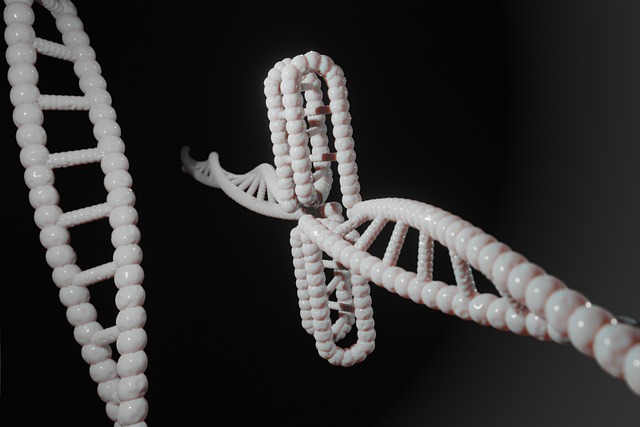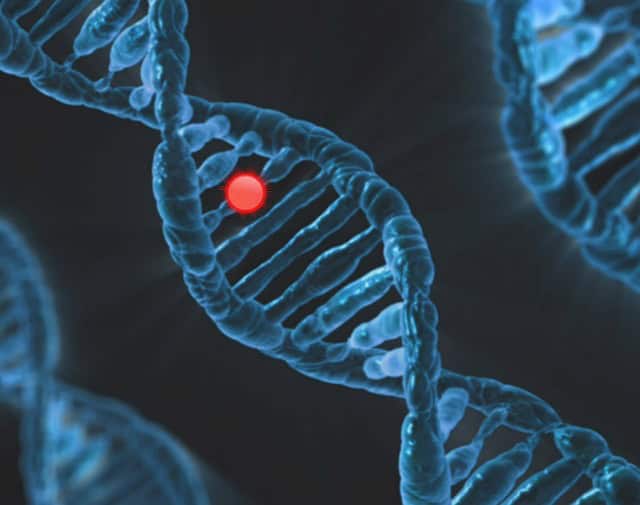-By: Bhavisha Changrani
In the quest for better health, the relationship between diet and genetics is becoming an increasingly important focus of research. For years, we’ve known that what we eat affects how we feel, but only recently have we begun to understand the crucial role that our DNA plays in determining. how various foods are absorbed and processed by our systems.Welcome to the fascinating world of nutritional genomics, a cutting-edge field that merges the science of nutrition with genomics—the study of genes and their functions.

What Is Nutritional Genomics?
Nutritional genomics is the study of how our genetic composition affects how we react to nutrients.It explores the interactions between our genes, diet, and health, with the ultimate goal of developing more personalized nutrition plans that optimize health outcomes based on an individual’s genetic profile. While we’ve long known that diet can affect disease risk and overall well-being, nutrigenomics provides deeper insights into how genetic variations—even small changes in our DNA—can influence how we metabolize certain nutrients, process food, and even develop diseases.
Think of it as a bridge between the fields of nutrition and genomics, helping us understand why some people thrive on certain diets while others struggle. It is rapidly changing the way we approach health and wellness, offering the possibility of a more personalized approach to nutrition based on individual genetic differences.

How Do Genes Affect Nutrition?
Our genetic code is unique to each person, and this uniqueness extends to how our bodies respond to food. Here are several ways in which our genes can influence nutrition and metabolism:
Nutrient Absorption
Certain genetic variations affect how efficiently we absorb essential nutrients from our food. For example, some individuals have a genetic variation that makes them more efficient at absorbing vitamin D from sunlight and food, while others might need higher dietary intake to achieve the same levels.
Metabolism of Macronutrients
Our genes can influence how we metabolize carbohydrates, fats, and proteins. Some people have genetic variations that make them more prone to store fat when they consume excess calories, while others may burn calories more efficiently. For instance, a genetic variant in the FTO gene has been linked to an increased risk of obesity and affects fat storage and energy expenditure.
Similarly, the way our bodies metabolize carbohydrates can vary. People with certain gene variations may have a slower insulin response after eating carbohydrates, putting them at greater risk of developing type 2 diabetes. Others may process carbs more efficiently, which could influence their risk of weight gain and diabetes.

Sensitivity to Dietary Components
Some people have a higher sensitivity to specific food components, such as caffeine, salt, or sugar, due to genetic factors. For instance, variations in genes like CYP1A2 influence how our bodies metabolize caffeine. People with certain versions of this gene metabolize caffeine more quickly, while others may experience greater effects from the same amount, potentially leading to jitteriness or even negative health consequences.
Similarly, genetic variations can determine how we respond to salt intake. Some people are more genetically predisposed to high blood pressure when they consume a lot of salt, whereas others may not experience these effects.
Food Sensitivities and Intolerances
Genetic factors play a significant role in conditions such as lactose intolerance and celiac disease. People with genetic mutations in the LCT gene (responsible for producing lactase) may not be able to properly digest lactose, leading to gastrointestinal discomfort. Similarly, individuals with celiac disease have a genetic predisposition to an immune reaction triggered by gluten.

Gene-Diet Interactions and Disease Risk
One of the most exciting applications of nutrigenomics is understanding how diet can modify genetic risk factors for diseases. For example, the MTHFR gene, which plays a role in folate metabolism, can influence an individual’s risk for cardiovascular disease or neural tube defects. By optimizing folate intake based on genetic information, we could potentially lower the risk of these conditions.
Additionally, some studies have shown that individuals with specific gene variations may benefit from certain dietary patterns. For example, people with specific APOE gene variations (linked to Alzheimer’s disease) may benefit from diets rich in omega-3 fatty acids to potentially reduce their risk of cognitive decline.
The Promise of Personalized Nutrition
While the field of nutritional genomics is still evolving, it holds immense promise for the future of healthcare and nutrition. With advancements in DNA testing, it’s now possible to learn more about how your body processes food on a genetic level. This opens the door to personalized nutrition—a tailored approach that takes your unique genetic makeup into account when crafting a diet plan.
Here are some ways personalized nutrition could revolutionize our relationship with food:
Customized Diet Plans
By analyzing your DNA, scientists could recommend a diet optimized for your unique genetic profile, ensuring you get the nutrients you need while minimizing your risk of diet-related diseases.
Precision Supplements
Genetic testing could also help determine whether you are at risk for certain nutrient deficiencies and suggest specific supplements to complement your diet.

Weight Management
By understanding how your genes influence fat storage and metabolism, personalized nutrition could provide strategies for effective weight management tailored to your unique genetic blueprint.
Disease Prevention: Genetic information could help identify individuals at higher risk for conditions like diabetes, cardiovascular disease, or certain cancers, enabling proactive, diet-based interventions.
Challenges and Considerations
Despite the exciting potential, personalized nutrition based on genetics comes with challenges. The science is still in its infancy, and much of the research is still ongoing. While some genetic variations have been well-studied, others are still being explored, and the interaction between diet and genes is complex. It’s also important to remember that lifestyle factors—such as physical activity, stress, and sleep—play a significant role in overall health, alongside genetics.
Furthermore, while genetic testing has become more accessible through companies that offer at-home DNA tests, interpreting the results can be tricky. Genetic predispositions don’t always equate to guaranteed outcomes, and diet recommendations based solely on genetic testing should be approached with caution. It’s important to consult with a healthcare professional or a registered dietitian who is trained in genetics to interpret results and create an appropriate nutrition plan.

Conclusion: The Future of Nutrition
As our understanding of nutritional genomics deepens, the potential for personalized nutrition is becoming more real than ever. In the near future, you may be able to use your genetic information to design a diet that enhances your health, prevents disease, and optimizes your well-being.
However, the promise of nutrigenomics is not just about following genetic recommendations to improve your health. It’s about empowering individuals with the knowledge of how their unique genetic makeup interacts with the foods they consume, leading to more effective, sustainable, and individualized health solutions.
As research advances and we uncover more about the fascinating intersection of genes and nutrition, we may find ourselves at the forefront of a new era in personalized health—one where your DNA helps you decide what to eat for optimal health.













